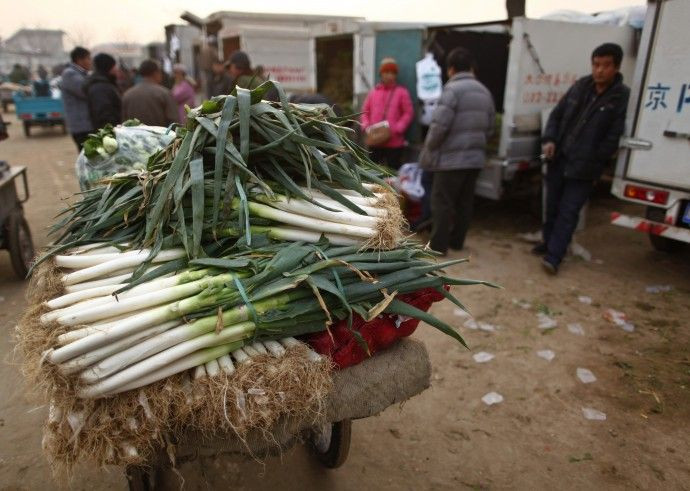China blames food commodity speculators, resorts to central planning policies

In response to soaring food prices, China announced plans for price controls.
Other central planning-styled policies include ordering local governments and departments to increase agricultural production and forbidding or reducing transportation costs and fuel costs for the agricultural sector.
Such policies conjure up images of long queues at U.S. gas stations during the 1973 oil crisis, the World War II rationing and central planning of U.S. and Europe, and the general modus operandi of staunch Communist economies.
Such behavior also suggests that Chinese policymakers are either panicking at an impending food crisis or choosing to resurrect their central planning modus operandi from 30 years ago.
In China, inflation has ramped up recently.
For October, overall consumer prices rose 4.4 percent year-on-year and food prices surged 10.1 percent year-on-year.
Why did food -- and everything else -- become so expensive recently?
While convention supply-and-demand factors are at play, an important factor is excessive liquidity.
Loose monetary policies -- both from its own government and foreign governments -- have fueled asset prices and speculation. The National Development and Reform Commission specifically blamed speculators for food inflation.
It threatened to severely punish agricultural traders and producers who spread fictitious price information, hoard products that are in short supply or manipulate futures markets, reported the Wall Street Journal.
However, clamping down on food speculators is the wrong policy, said Yiping Huang of Peking University.
The government is busy cracking down on speculators. Every time the government does it, more speculators come up, he said.
Food speculation exists partly because savers and investors are forced to do it.
In China, the real interest rate set by the government is negative. If you don't speculate [and just put money in the bank], you definitely lose money, said Huang.
While policymakers recently raised interest rates and the reserve requirement ratio for banks, Huang thinks these efforts haven't gone far enough. For one, the real interest rate remains negative. Instead of further adjusting market incentives, policymakers have resorted to central planning policies. They also used similar tactics to cool the real estate market. For example, certain cities prohibited families from purchasing second homes.
These central planning-styled policies, however, usually don't work well and only distort behavior.
In the U.S., gasoline price controls led to long lines at the gas station, propped up demand above the market equilibrium, and exhausted inventories.
When Chinese officials forbid university canteens from raising prices, the canteens circumvented that policy by making the portions smaller, said Huang.
In the current case of rising food and real estate prices, shrewd savers -- unwilling to tolerate a negative real savings rate -- will likely find ways to circumvent rules and continue to speculate.
After decades of market-oriented reform, Huang is surprised at such central planning-styled policies.
Reading the [price control policies] is like a time machine, putting my feelings right back to the 1980s, he said.
Email Hao Li at hao.li@ibtimes.com
© Copyright IBTimes 2025. All rights reserved.





















